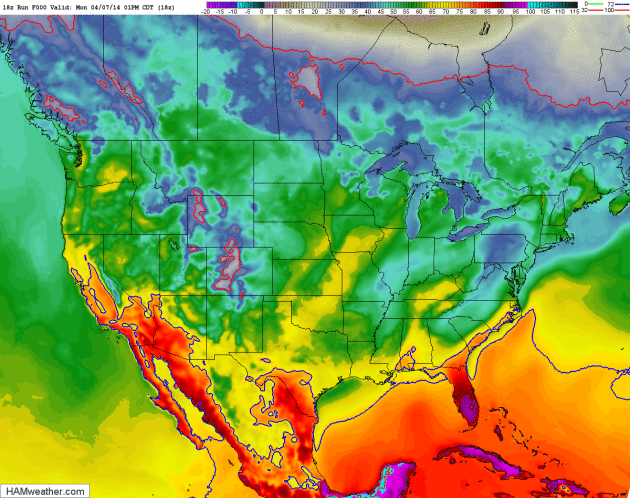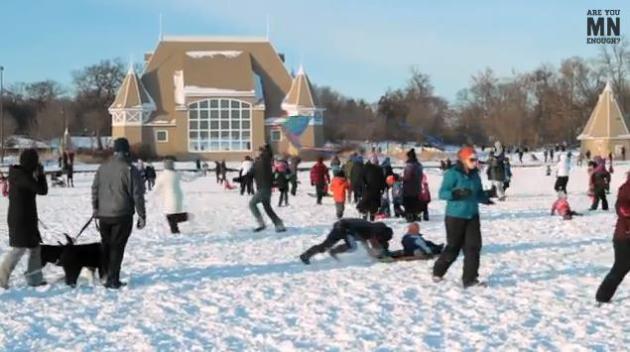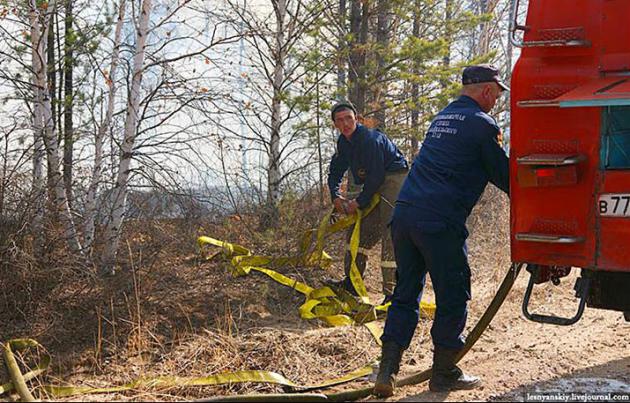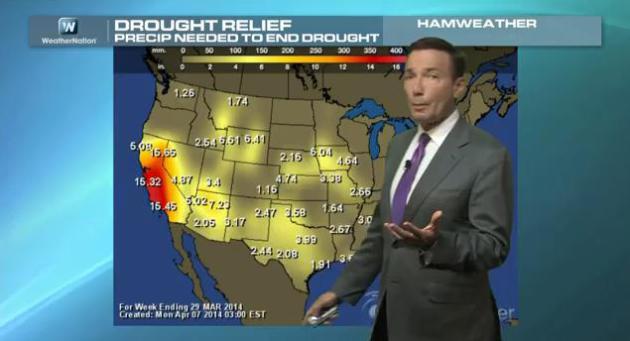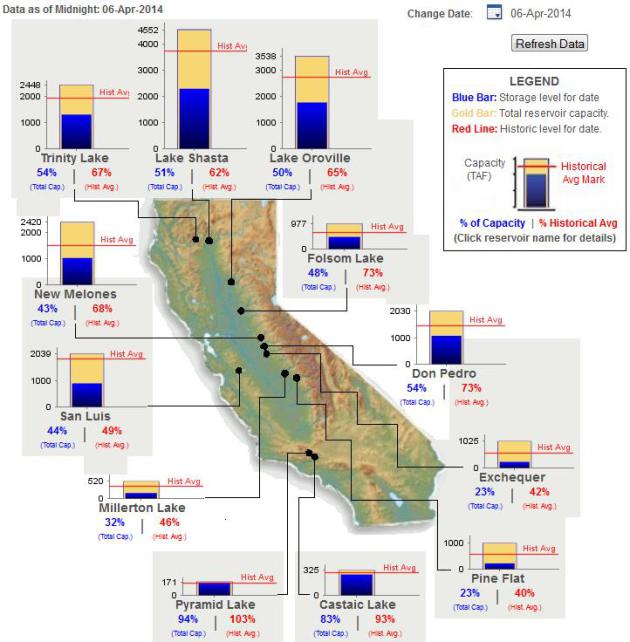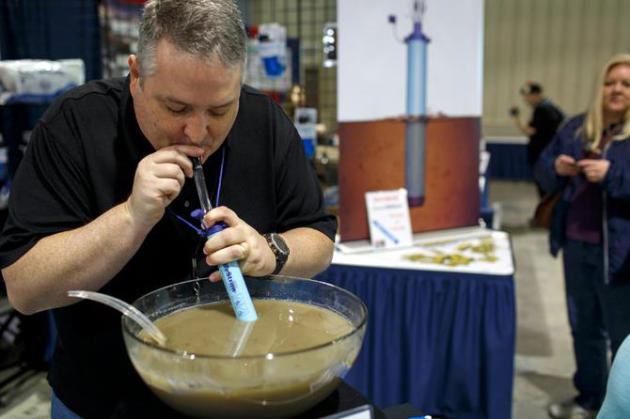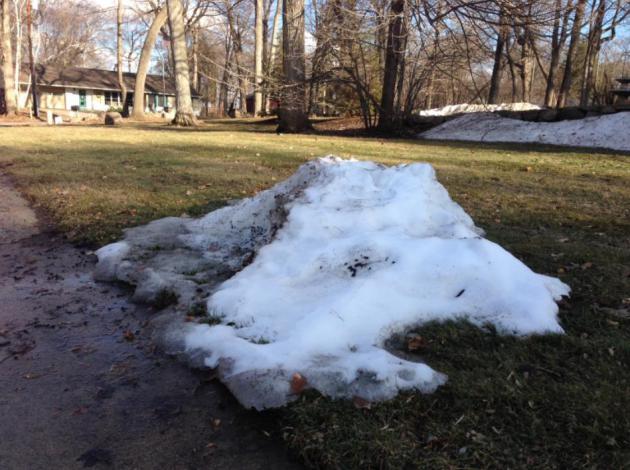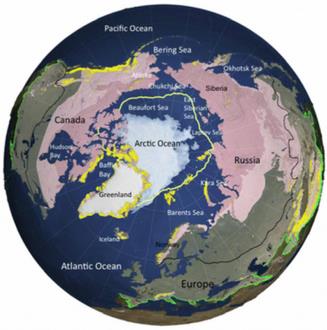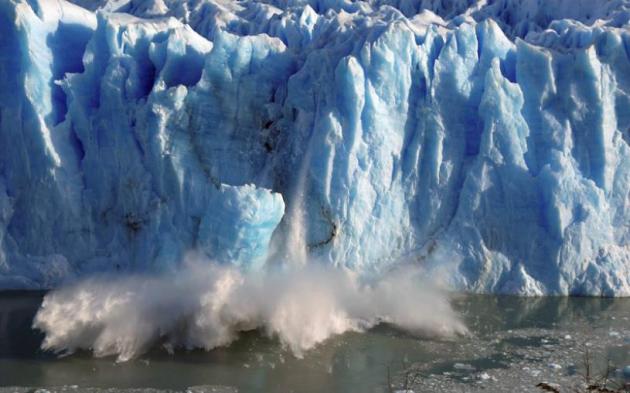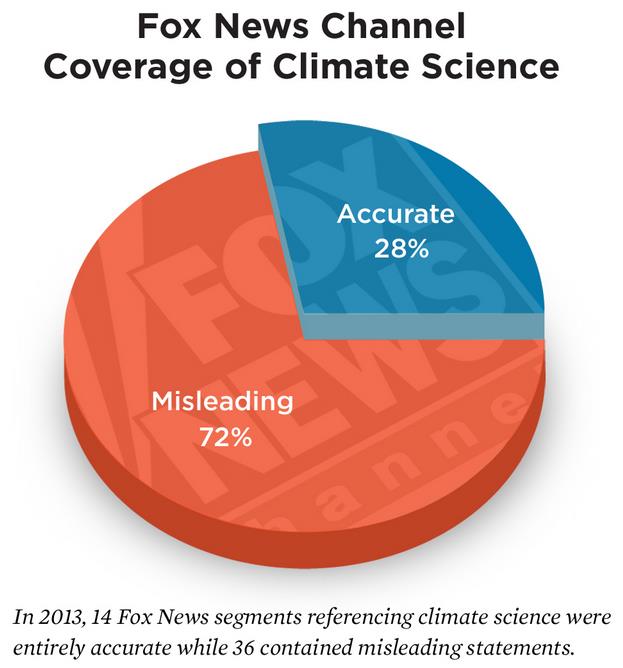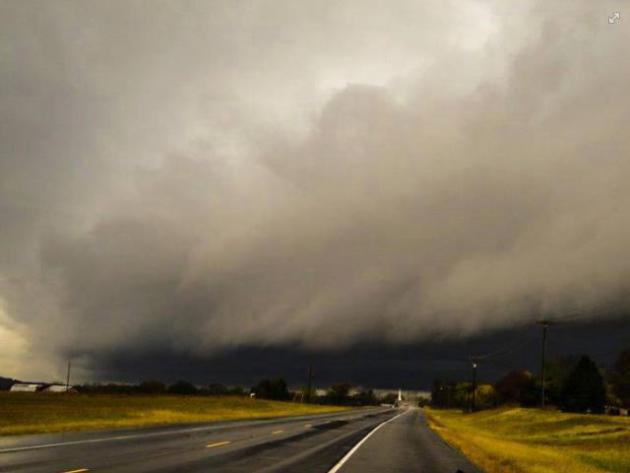Hope Springs Eternal
Sinclair
Lewis said it best. "Winter is not a season, it's an occupation." 69.5
inches of snow, 17 inches above average, to date. The Polar Vortex is
getting its own reality TV show. I'm relieved that spring has regained
its bounce.
Expect another unsettling neighborhood diaspora as
pale, pasty neighbors emerge from hibernation, shielding their eyes from
a foreign, lukewarm sun.
Weather zombies in our midst.
Tomorrow
may be the day you've been daydreaming about for 4 months; even milder
than Sunday. Pacific air, a sun angle as high in the sky as it was on
September 8, and dwindling piles of gritty snow should result in a high
near 70F. Note to self: ask for that raise Wednesday when your boss may
be delirious, temporarily drugged by a warm front. Worth a shot.
A
puff of cooler air sets off light rain showers early Thursday; a few
heavier T-storms may sprout Saturday, the milder day of the weekend.
A
Canadian relapse is still on tap early next week; highs in the 40s
Sunday & Monday, but no more accumulating snow is brewing.
Thank. God.
I feel like I was just pistol-whipped by Old Man Winter. Maybe we should start a support group? Oh yeah, we already have one.
It's called "Minnesota".
* photo courtesy of
KARE-11.
On Again Off Again Spring Is On Again.
Today will be a few degrees cooler, but the sun should be out. Tomorrow
will be a good excuse for a comp day, or sleeping in until the crack of
noon. A shower is possible ahead of a weak cool front early Thursday;
heavier showers and T-storms Saturday before temperatures tumble early
next week. Graphic: Weatherspark.
A Buckling Jet Stream.
Although I still see a cool bias through the end of April, a sudden
northward shift of the jet stream will pump warm air across the Plains;
Wednesday the mildest day in sight with highs near 70F. 2-meter NAM
temperatures courtesy of NOAA and Ham Weather.
Are You Minnesota Enough? - Winter Sucks - TPT Rewire.
I like the snow and even the cold some days, but this past winter
really was the acid test for many of us. Do you like winter, or tolerate
it? Here's a very cool
YouTube segment from TPT: "
Winters
in Minnesota can be hard. Like, really hard. So why do we do it? This
video will remind you. In this episode of "Are You MN Enough?" Producer
Eve Daniels takes a look at just how much Minnesota Winters suck."
Forest Fires Arrive Early As Siberia Sees Record High Temperatures.
We experienced a pioneer winter, but much of the rest of the Northern
Hemisphere experienced an unusually mild winter. Here's a clip from
The Siberian Times: "
The
past week saw record warm weather in western Siberian cities including
Novosibirsk, Tomsk, Kemerovo, Barnaul and Gorno-Altaisk. Natural
Resources Minister Sergei Donskoi warned a conference chaired by Prime
Minister Dmitry Medvedev: 'The forest fire situation is tense in Russia
this year. Due to a shortage of precipitation the forest fire season has
begun almost one and a half months ahead of the norm.' By 2 April, 17
forest fires had been registered across 2,000 hectares. Among the areas
now at risk after a faster-than-usual snow melt are the south of Siberia
to the territory of the Far Eastern Federal District, to Baikal and the
Amur regions..."
Image credit above: "
Some parts
of Russia have shown even more extreme warming - in the Arctic, south
Chukotka and Kamchatka regions temperatures rose 150 to 200 per cent
more than in the rest of the country." Picture: Alexander Lesnyanskiy.
Nagging Drought Concerns.
The Central Valley of California requires a theoretical 15-17" rain to
pull out of the drought, which seems exceedingly unlikely, now that the
alleged wet season is history. Folks out west may wind up praying for an
El Nino in the coming months. The drought is pushing back into the
Great Plains; that's the subject of today's
Climate Matters: "
WeatherNationTV
Chief Meteorologist Paul Douglas goes over the continuing dangerous
drought occurring across the western US. Some places need over a foot of
rain just to break even! Is there any relief in sight?"
California Reservoir Levels.
In the Central Valley levels are running anywhere from 23% to 54% of
normal. California never had a real wet season, just a couple of teaser
storms. That may set the stage for water shortages and a more intense
wildfire season later in 2014, even if El Nino materializes (which tends
to energize the southern branch of the jet stream, increasing the
potential for wet storms pushing into the west coast). Map:
California Department of Water Resources.
The Capitalism of Catastrophe.
Will civilization as we know it break down at some point in the future?
No idea, but you can bet there's someone ready and willing to make a
buck off low-grade paranoia. Here's a clip from
The New York Times: "...
Ever
since Isaiah, someone somewhere has been talking about the imminent
demise of civilized society. Still, one could argue that today’s
connected world of globalized supply chains and multinational banks is
especially susceptible to a catastrophic failure. This is not the
exclusive opinion of the fringe groups of society: Just last month, a study
financed by NASA found that, because of financial inequality and
environmental problems, the industrial world could suffer “a precipitous
collapse” within decades..."
Photo credit above: "
Brian
Howard of PrepareNow Outfitters drank dirty water with a purification
straw at the National Preppers and Survivalists Expo in Tulsa, Okla."
Credit Steve Hebert for The New York Times.
Apple's "Holy War" With Google. Steve Jobs was pretty upset (uber-pissed) with the search giant before his death, as reported by
Quartz; here's the introduction: "
In
2010, a year before his death, Steve Jobs outlined Apple’s strategy in
an email to the company’s 100 most senior employees. He heralded the
“Post PC era,” vowed “Holy War with Google,” promised to “further lock
customers into our ecosystem,” and warned that Apple was “in danger of
hanging on to old paradigm too long.” The email was an agenda for Apple’s annual “top 100″ meeting later that year. It was released this week as part of Apple’s lawsuit against Samsung over smartphone patents..." (Image:
phandroid.com).
An Electric Concept Car That Floats?
Because you never know when you'll need to cross a flooded river or
creek. Come to think of it I need one of these. Here's more information
from
greencarreports.com: "T
here
are electric cars and (a few) amphibious cars, but what about electric
amphibious cars? In the wake of the 2011 earthquake and tsunami that
devastated Japan, there have been a few attempts to use electric cars
for emergency power--but now this newest concept takes things a step
further. The Fomm Concept One (via Inhabitat) is an electric car that floats like a boat in emergencies.
Japan-based Fomm believes this wacky plug-in car could be useful in
such flood-prone areas as Southeast Asia, where it could theoretically
keep people mobile during natural disasters..."
Google Glass Lets You "Livestream" Events. This opens up all kinds of possibilities, some better than others. What, exactly, would you stream? Here's a clip from
pcmag.com: "
Friends
missing a concert? Sister can't make it to your baby shower? Just strap
on a pair of Google Glass and livestream the event. Livestream today launched
its first piece of Glass software: Just a tap of the headset and a
simple "OK Glass, Livestream" voice command will put online viewers in
your shoes..."
Your Reality Is 15 Seconds In The Making. Yes, "real-time" may be a bit overrated.
Quartz has the story; here's a clip: "...
His
research, published with his co-author David Whitney, suggests that
when we focus on something, the image we perceive isn’t a snapshot of it
at that moment, but rather a sort of composite—a product mostly of what
we’re seeing now, but also influenced by what we’ve been seeing for the
previous 15 seconds or so. They call this ephemeral boundary the
“continuity field”, and it could explain a lot about how we pay
attention..." (Image: corebrain.org).
Climate Stories....
Climate Trends In The Arctic As Observed From Space. It's Melting. Fast. Minnesota climate scientist Greg Laden has the story, a recap of new NASA research on the rate of Arctic ice melt at
scienceblogs.com. Here are a few bullet points from the report:
*
Warming in the region has been amplified ... with the rate of warming
observed to be ~0.60±0.07 o C per decade in the Arctic (>64 oN)
compared to ~0.2C per decade globally during the last three decades.
* sea ice extent has been declining at the rate of ~3.8% per decade,
* while the perennial ice (represented by summer ice minimum) is
declining at a much greater rate of ~11.5% per decade.
* Spring snow cover [is] declining by -2.12 % per decade for the period 1967 to 2012.
* The Greenland ice sheet has been losing mass at the rate of ~123 Gt
per year (sea level equivalence of 0.34 mm per year) during the period
from 1993 to 2010
* for the period 2005
to 2010, a higher rate of [Greenland ice sheet] mass loss of ~228 Gt per
year has been observed.
* the average
area of mountain glaciers has declined by as much as 10% per decade
during the period from 1960 to 2000.
*
Increases in permafrost temperature have also been measured in many
parts of the Northern Hemisphere while a thickening of the active layer
that overlies permafrost and a thinning of seasonally-frozen ground has
also been reported...."
Climate Change Needs The Politics Of The Impossible.
Can the current, fractured two-party system work with industry to
devise solutions and technologies to mitigate climate change, or will be
forced to play defense, throwing all our resources at adaptation? Or
will a viable third party arise, with the vision, means and grass root
support necessary to turn words into action? Here's a clip from a story
at
The Daily Beast: "...
So
the age of climate change doesn’t just need climate scientists, or even
technologists, and adaptation engineers. They are essential, but if we
just rely on them, we’re likely to drift further into passivity and
pessimism. We also need, in incremental and experimental ways, to keep
building up a real politics of climate change. That politics will be
both environmentalist and human-oriented, because there’s no separating
the two in the age of climate change. It will have to ask how the
peoples of the world are going to live together and share its benefits
and dangers, and also how we are going to use, preserve, and transform
the world itself. Braiding together human rights and distributive
justice with environmental ethics and the human relation to the natural
world isn’t just a nice-sounding, if daunting idea. It’s quite simply
the only way forward..."
Photo credit above: Andres Forza/Reuters.
Science or Spin. Assessing The Accuracy of Cable News Coverage of Climate Science. Here's an excerpt of a recent report from the
Union of Concerned Scientists: "...
To
gauge how accurately these networks inform their audiences about
climate change, UCS analyzed the networks' climate science coverage in
2013 and found that each network treated climate science very
differently. Fox News was the least accurate; 72 percent of its 2013
climate science-related segments contained misleading statements. CNN
was in the middle, with about a third of segments featuring misleading
statements. MSNBC was the most accurate, with only eight percent of
segments containing misleading statements..."
More Than 100 Scientists and Economists Call For Rejection of Keystone XL Tar Sands Project. Here's a late update from
NRCD, the National Resources Defense Council: "
Today, more than 100 scientists and economists called on
President Obama and Secretary of State John Kerry to reject the
Keystone XL tar sands pipeline that would bring some of the world’s
dirtiest fuel from under Canada’s Boreal forest to the Gulf Coast mainly
for export. They write in the letter, “The world is looking to the
United States to lead through strong climate action at home. This
includes rejecting projects that will make climate change worse such as
the Keystone XL tar sands pipeline...”
Ag Groups Can't Ignore Perils of Climate Change. Here's an excerpt of an Op-Ed from
pantagraph.com in Bloomington, Illinois: "...
Currently,
Takle and ISU colleague Jerry Hatfield, director of the National Lab
for Agriculture and Environment, are lead authors of the ag chapter of
the mandated 2014 National Climate Assessment. The report, due later
this month, “will paint a sobering picture of climate change globally
and its impacts on the U.S.,” Takle related when interviewed last fall
for a campus publication. “One of the key messages of the report,” Takle
said “is that the incidence of weather extremes will continue and will
have increasingly negative effects on crop and livestock productivity
because critical thresholds are already being exceeded.” At least
someone at a respected American agricultural institution believes
climate change will be the 21st century farm and ranch game changer. Too
bad it’s not an actual farm or ranch group." (File photo: Ashley Poling, Nashville office of the National Weather Service).


